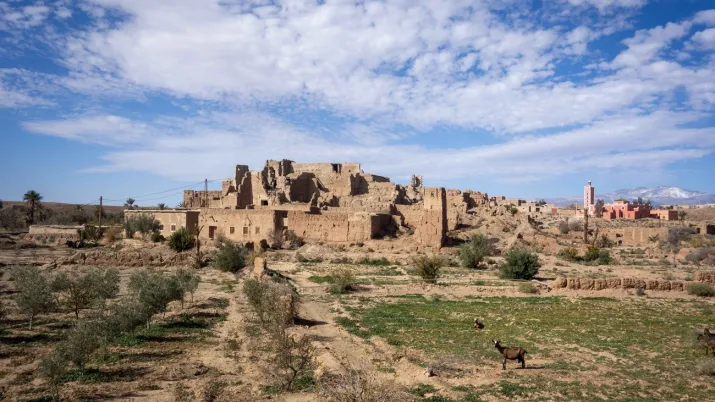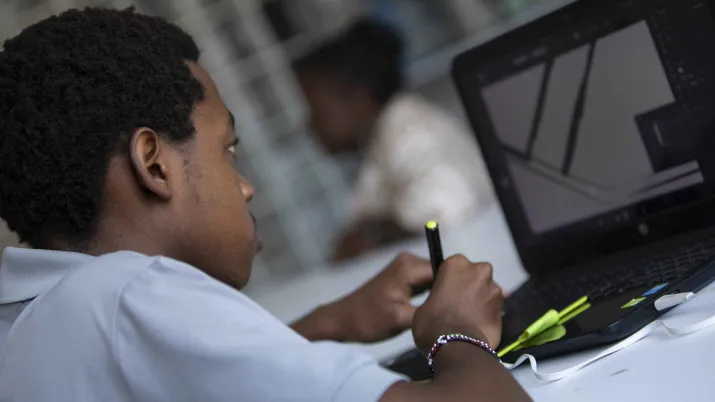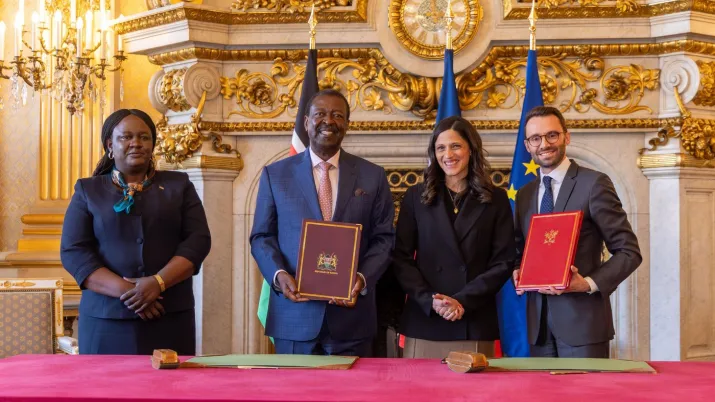Share the page
Enriching soil fertility worldwide for food security
Published on
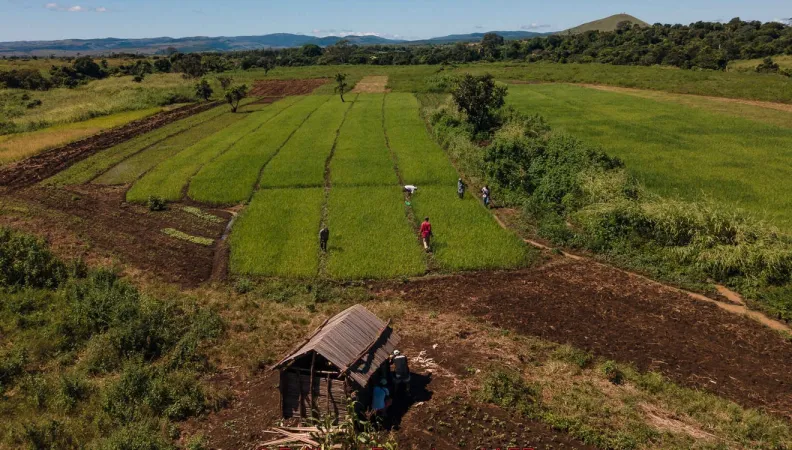
In the face of growing food insecurity, the issue of land degradation and soil fertility is more crucial than ever. Committed to implementing the ecological and agricultural transition worldwide, AFD Group is working to preserve and restore land, notably through agroecology. Here's an overview.
Originally published in February 2024, this content was updated on 02/12/2024 and 19/02/2025
Faced with population growth, agricultural practices, and land overexploitation, half of the world’s arable land is in poor condition or even exhausted. In a context of international tensions since the Covid-19 crisis, further exacerbated by the conflict in Ukraine, food insecurity is on the rise. In Africa, one in five people now suffers from hunger, according to the 2023 SOFI report. Preserving and enhancing soil fertility is therefore essential to ensuring sustainable agricultural production. But how does the AFD Group concretely support projects around the world?
TerrAmaz: restoring biomass across the Amazon
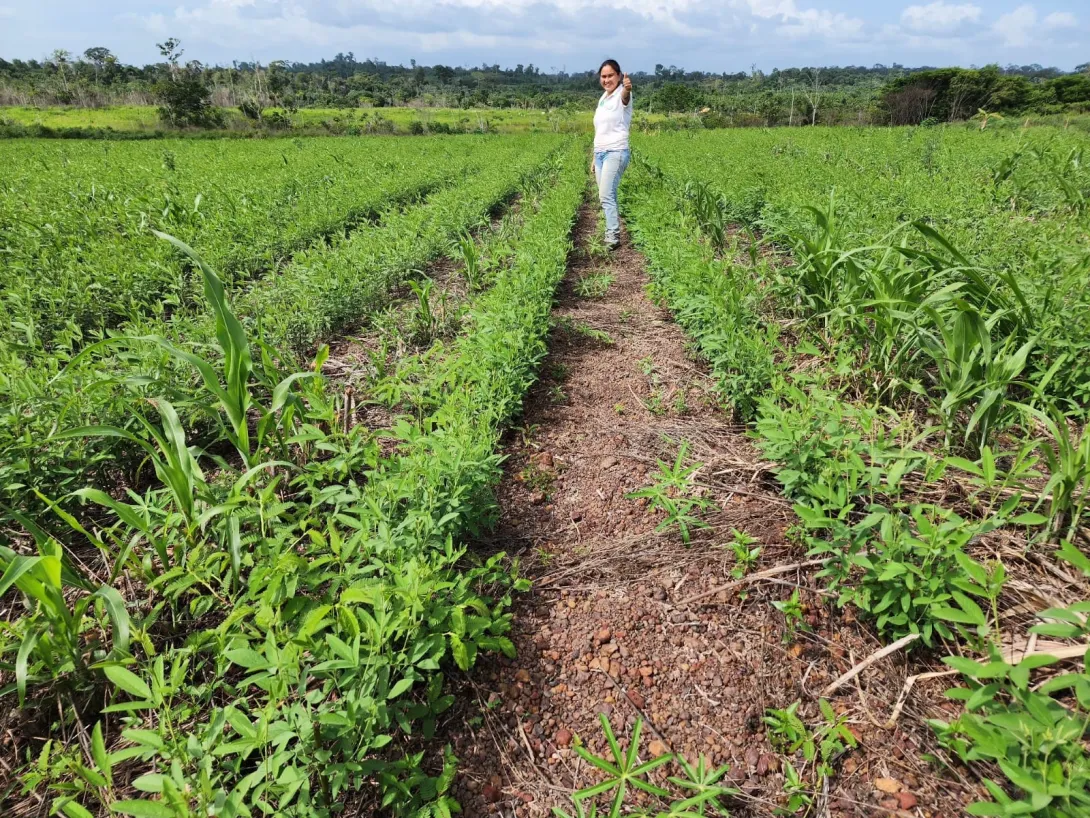
With over 30 million hectares of degraded land, the soil in the Amazon region is affecting its inhabitants’ food security and incomes. However, Amazonian ecosystems can draw on the region’s natural, renewable assets, by producing and recycling biomass (organic matter collected when carrying out plot maintenance), without the need for deforestation.
Further reading: TerrAmaz: Reconciliation Deforestation with Development in the Amazon
Regenerative agricultural practices involve selecting plants for their capacity to cover the soil and accumulate humus leaf litter, which stimulates the microorganisms in the soil. In combination with food or cash crops, leguminous plants are also used as green fertilizers, and grasses as biomass producers and carbon fixers.
The TerrAmaz project is financed by AFD and implemented by CIRAD, ONF International and AVSF. It relies on a combination of scientific research and local engagement to support Amazonian stakeholders in expanding soil restoration practices across the Amazon regions. The project focuses on the most vulnerable communities, whether indigenous or small-scale farmers.
Fighting malnutrition by improving soil fertilization in Burundi
Set English subtitles on YouTube
“We were growing crops but the harvests were not very good. And all the crops were often washed away by erosion. It was difficult for me to feed my children and give them a balanced diet,” says Marie Goreth Ndayisaba, a mother, farmer in Burundi, and participant in the TAPSA project, implemented by INADES Formation Burundi, in partnership with CCFD Terre Solidaire.
The aim of the program is to strengthen food sovereignty by supporting farmers and others in the transition to agroecology. Farmer-to-farmer discussions and training are helping to overcome difficulties and the lack of local resources, with a focus on combating erosion, using ash to enrich the soil and producing organic fertilizer. “I used to produce 70 to 80kg of beans,” says Marie Goreth Ndayisaba. “Now, on the same land, my yield has almost tripled!”
This project has also proven effective in Senegal, Mauritania, Rwanda, Democratic Republic of Congo, Colombia, Peru, Bolivia, Ecuador, Egypt, Lebanon and Timor.
Haiti: training smallholders in sustainable techniques
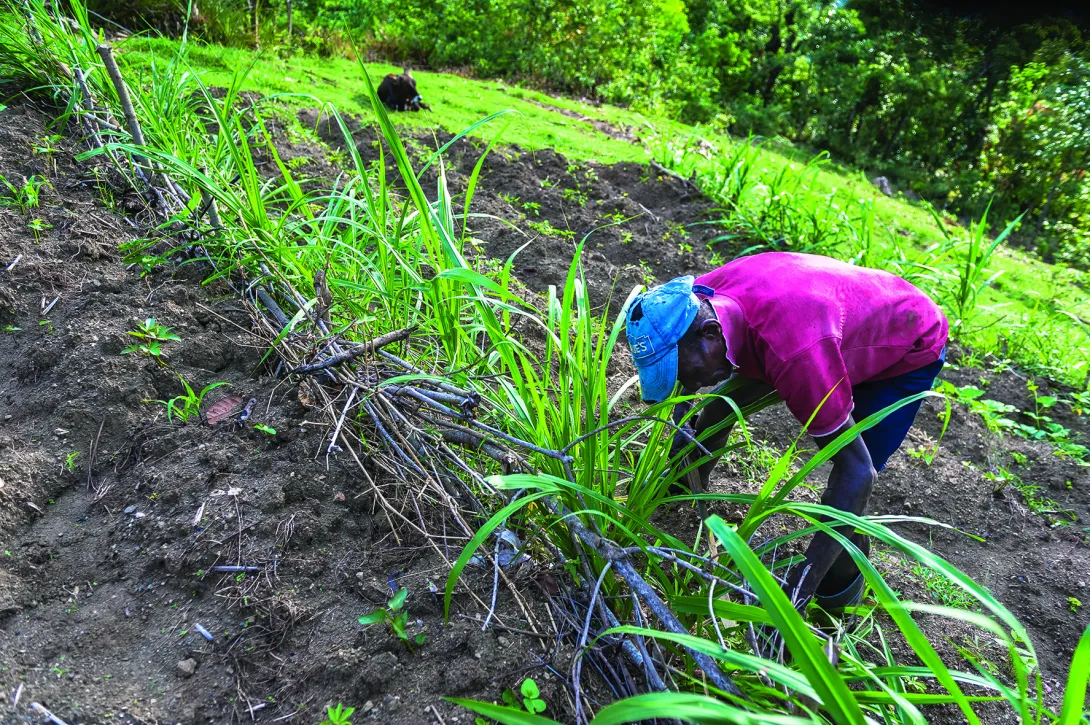
In Haiti, heavy tropical rains, steep terrain and a lack of plant cover are causing extreme soil erosion. The deterioration of crop-producing areas is a threat to production, which is a serious problem for the majority of farming families, who have no room for maneuver due to pressures on land use.
Jude Noradin grows crops on his land in the commune of Limbé. Like over 400 other smallholders in the area, he attended training courses organized by the PAD Nord project, led by Agrisud International. “Agroforestry, contour farming and nature-based protection ramps, are practices that have given me new hope, and I’ve been encouraging my neighbors to adopt them too.” Now organized as part of a “kombit” – a traditional support group – Jude and his neighbors have set themselves the goal of developing their village’s 35 hectares of farmland.
“These practices limit erosion, improve soil quality, safeguard biodiversity, and optimize water use,” says Joseph Fontescony, North Department Director for the Ministry of the Environment. “All this contributes to better climate change adaptation.”
Building anti-erosion terraces in Ethiopia
The mountainous regions of southern Ethiopia are highly vulnerable to erosion, and the density of the rural population in these areas is among the highest in Africa. Yet the lives of inhabitants are highly dependent on farming, livestock and water resources.
Since 2020, Inter Aide and RCBDIA (a partner NGO in Ethiopia), with support from AFD, have been working to implement soil conservation measures and are training farmers in conservation techniques.
“With the creation of these vegetated terraces using fodder that can be harvested all year round, the cattle are better fed and produce more milk, and we can sell our surplus yield at the market,” says farmer and trainer Yohanes Amao.
Over the last four years, the project has been involved in the installation of almost 2,000 km of anti-erosion vegetated structures, protecting 2,500 hectares of farmland, with some 40,000 families benefiting from this project.
Restoring local production in Cambodia
Despite the influx of tourists, Cambodian smallholders in Siem Reap are struggling to find their place in the fresh produce food market. Local production is seasonal, not very diversified and split between a vast number of small family farms, resulting in significant pressure on land use.
To help these family-run farms reestablish their role on the market, the Lada project is focused on increased use of agroecological practices, crop diversification and marketing of their produce: 1,970 farms have received support in transitioning to an agroecological model, with their crops being promoted via the Green Farmers organization.

